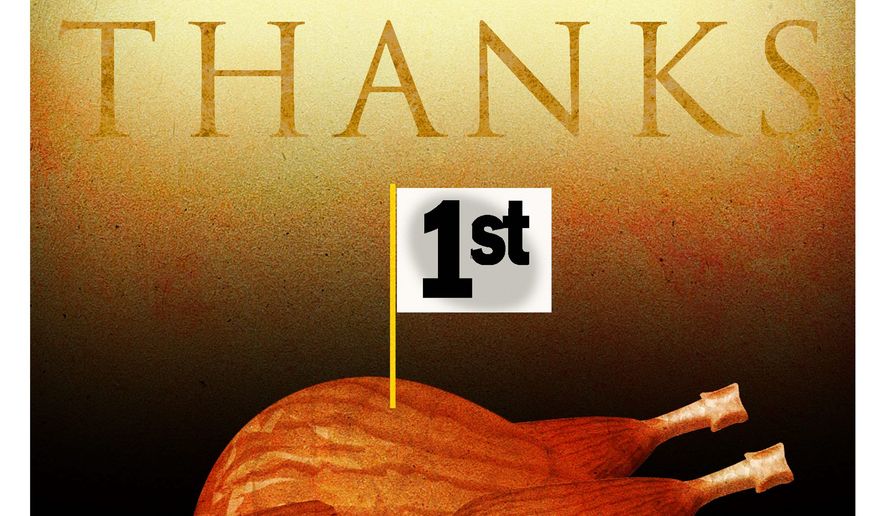OPINION:
The first Thanksgiving on American soil may well have occurred in May 1541 near Canyon, Texas, where Father Juan de Padilla said Mass for an army of 1,500 accompanying Spanish conquistador Francisco Vasquez de Coronado.
Or the first Thanksgiving on American soil may have occurred on Sept. 8, 1565. On that day, upon landing in Florida, Father Francisco Lopez said a Mass of Thanksgiving for the 800 newly arrived Spanish colonists. Afterward, at the invitation of Don Pedro Menendez de Aviles, the admiral of the fleet, the members of the Timucua tribe joined the Spaniards in a communal celebratory meal.
Virginians have a slightly different theory of the case. When settlers landed at Berkeley Hundred in present-day Henrico County on Dec. 4, 1619, Captain John Woodlief, prayed: “We ordaine that this day of our ships arrival, at the place assigned for plantation, in the land of Virginia, shall be yearly and perpetually kept holy as a day of Thanksgiving for Almighty God.”
That was almost a full two years before the Pilgrims managed to offer thanks. Consequently, and correctly, Virginians argue that the first Thanksgiving in English-speaking America occurred in the commonwealth.
Finally, in 1621, in the wake of a bountiful harvest after a year of terrible sickness and desperate privation — almost half of the original 102 settlers died of disease in that first year — the Pilgrims set aside a day to give thanks to God and celebrate his bounty.
I, like many Americans, had a relative (Richard Warren) at perhaps the most important and noted of the original thanksgivings. I remain very grateful for his sacrifice and suffering in those first difficult moments on this continent.
In 1789, George Washington declared the last Thursday in November a national Thanksgiving. This was a declaration and did not create an official holiday, but it set the tone for much of the next century.
A little closer to our time, in his Thanksgiving proclamation of 2019, President Trump noted that: “We acknowledge God as the source of all good gifts. We ask him for protection and wisdom and for opportunities this Thanksgiving to share with others some measure of what we have so providentially received.”
What does all of this thanksgiving — and the gentle if spirited competition to be considered the first to give thanks — say about the United States?
It says that we are a nation moored to God and grateful to be so. Our national identity is theistic right down to its core. As G.K. Chesterton once (accurately) noted, America is “a nation with the soul of a church.”
It is no accident that even our conception of our rights is explicitly linked to the Creator.
These are all intensely uncomfortable facts for some; for others they are the source of comfort and resilience. Our own destiny, and that of our nation, are, in many respects, in the hands of a loving and just God.
Some have tried to make Thanksgiving into a celebration centered on those things for which people should be thankful (children, health, etc.). That’s not the right way to think about it.
Thanksgiving is not about what you are thankful for; it is about who you are thankful to.
This Thanksgiving, make sure to thank the author of all things for everything you’ve been given — good and bad — in your life.
• Michael McKenna, a columnist for The Washington Times, is the president of MWR Strategies. He was most recently a deputy assistant to the president and deputy director of the Office of Legislative Affairs at the White House.




Please read our comment policy before commenting.